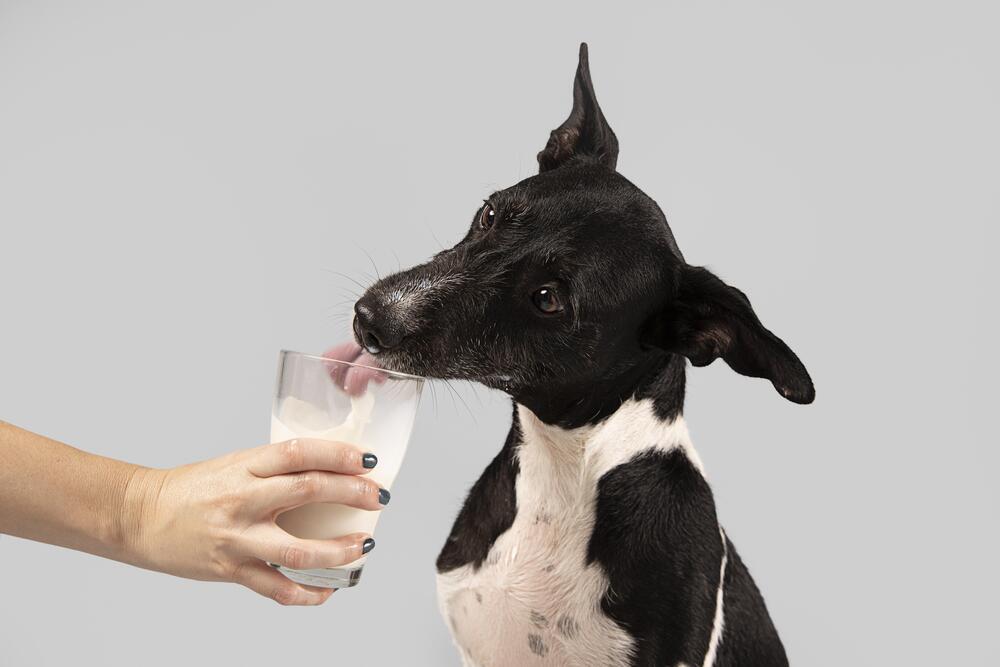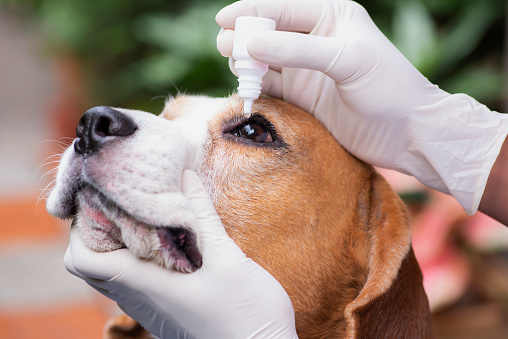
There has been a tendency in recent years for many people to try to live healthier. This includes everything from eating healthier food, drinking more water, and doing sports, to generally changing our attitude toward life by consciously choosing to think more positively (as much as it is possible and realistic) and opting for things that are good for us.
Food, especially plant-based food, has taken a main place in this trend as an essential factor for people to live a healthy life. However, healthy food is important not only for our well-being but for the health of our pets. Since plant-based food has become very popular among young people, vegetarians, and people who aim at improving their lifestyle in general, some of you may have considered feeding your dogs plant-based food as well, e.g. oat milk.
Since plant-based food such as oat
milk is safe and even healthy for people, can we be confident in its
benefits for our dogs? Let’s find out whether oat milk is safe for
dogs!
What Is Oat Milk?
Oat milk is a creamy non-dairy drink, made of water and whole oat grains, which has become a popular alternative for milk. It does not contain lactose and is lower in fat, which is an advantage for many people who want to stay fit and keep track of their daily calorie intake. Also, many people prefer oat milk as a supplement to their coffee, cereal, or smoothie. However, our tastes and food preferences may greatly vary from a person to person.
Is Oat Milk Safe For Dogs?
Yes, it is safe for dogs when given in moderate amounts. However, oat milk is not a natural part of our paw friends’ nutritional requirements, and it cannot replace a balanced diet based on the age, breed, and lifestyle of our dog. Feeding our paw family member oat milk can have both benefits and disadvantages for his/her health.
Benefits of Oat Milk for Dogs
First, we would like to clarify that dogs have nutritional requirements which are different from ours. We would not recommend that you replace your dog’s regular food with oat milk or any food that can be used as a supplement only.
No Lactose and Milk Allergen
Since oat milk does not contain lactose and other allergens included in milk, it could be suitable for dogs who are lactose intolerant.
Fiber
Due to its fiber content, oat milk can greatly contribute to your dog’s healthy bowel movement.
Vitamins & Minerals
Oat milk will provide your paw friend with vitamins A, and B1 (thiamine), vitamin B2 (riboflavin), B6, and vitamins D and E. Also, it contains copper, manganese, phosphorus, zinc, copper, magnesium, and iron.
Cholesterol
Oatmeal may be beneficial for dogs who have high cholesterol. Based on human studies, oats help reduce cholesterol levels. A study with 15 dogs has already been made, which showed the same results as those in humans. Although more tests still need to be run, we are optimistic about the benefits of oat for reducing bad cholesterol not only in humans but also in dogs.
Carbohydrates
Oat milk contains carbohydrates, which are a great source of energy.
Bones
Due to the content of calcium, oat milk can be beneficial for the bones of your paw friend.
Blood Cells
Oat milk is known for promoting healthy red blood cell production and preventing anemia.
Immune System
Since oat milk contains various minerals, vitamins, and fibers, it will help boost your dog’s immune system.
Disadvantages Of Oat Milk For Dogs
Stomach Issues
Despite all the healthy ingredients that oat milk has, in large amounts it can cause intestinal issues in your paw friend. Symptoms of your dog’s intolerance toward some ingredients can be stomach issues, diarrhea, constipation, vomiting, and abdominal pain. This is why you should feed your canine small amounts of oat milk or any other products you do not know how his/her body will respond to. Small amounts should not cause any serious issues. However, if you notice that your dog’s symptoms remain without change, you should consult a veterinarian.
Allergy
Dogs can be allergic not only to dairy products but to certain ingredients in non-dairy ones. In order to exclude any allergies your dog may have to the oat milk's ingredients, you should talk to his/her veterinarian and have him/her tested. Symptoms of allergy or intolerance to oat milk can be: fatigue, lethargy, swelling on the face, itchy skin, and seizures.
Sweeteners
Based on the brand, oat milk can be sweetened or unflavored. Added flavors and sweeteners can be harmful to your dog for several reasons, the most harmful of which is the presence of xylitol. As you may know, xylitol is toxic for dogs and can even cause death. In order to exclude any possibility of your dog getting intoxicated, you should check the ingredients and make sure that xylitol is not one of them. The second reason is that added sweeteners may cause your dog to gain weight, which may help health conditions like obesity and diabetes develop. Let’s not forget that dogs can not digest the same amounts of sugar humans can.
One more issue that sweeteners can cause is the so-called sugar rush. This is the condition when you feel very energetic and happy after you have eaten something sweet. However, large amounts of sugar may lead to increasing the heart rate of your dog, which can cause anxiety.
Tips On What to Consider Before Feeding Your Dog Oat Milk
Gradual Transition
Introducing new food, including oat milk, to your dog should always be done step by step, by adding small amounts. This approach will help you recognize any allergies your dog may have to the food.
Observe Your Dog
Once you provide your dog with small amounts of oat milk, make sure that you pay close attention to him/her. Try to identify any changes in his/her behavior and energy level. Watch out for symptoms such as decreased energy, loss of appetite, diarrhea, vomiting, and swelling of the lips, ears, and eyes.
Consult A Veterinarian
Always consult a veterinarian if you would like to incorporate new food into your dog’s diet or if you are not sure what effects certain food can have on your dog’s health in the long term. A veterinarian will give you advice on whether it is a good idea to implement this food and if yes-what amounts would be appropriate throughout the day. It is important that the food you feed your paw friend meets his/her nutritional needs.
Opt For Oat Milk Without Sweeteners
As already clarified above, added sweeteners and flavors are not healthy for dogs and should be avoided. This is valid for all types of food-the more natural, the better.
Read the Label
We would give you this advice not only for the oat milk but also for all types of food you buy for yourself, your family, and your dog. Make sure that the ingredients that the particular oat milk brand contains are safe and healthy for dogs.












